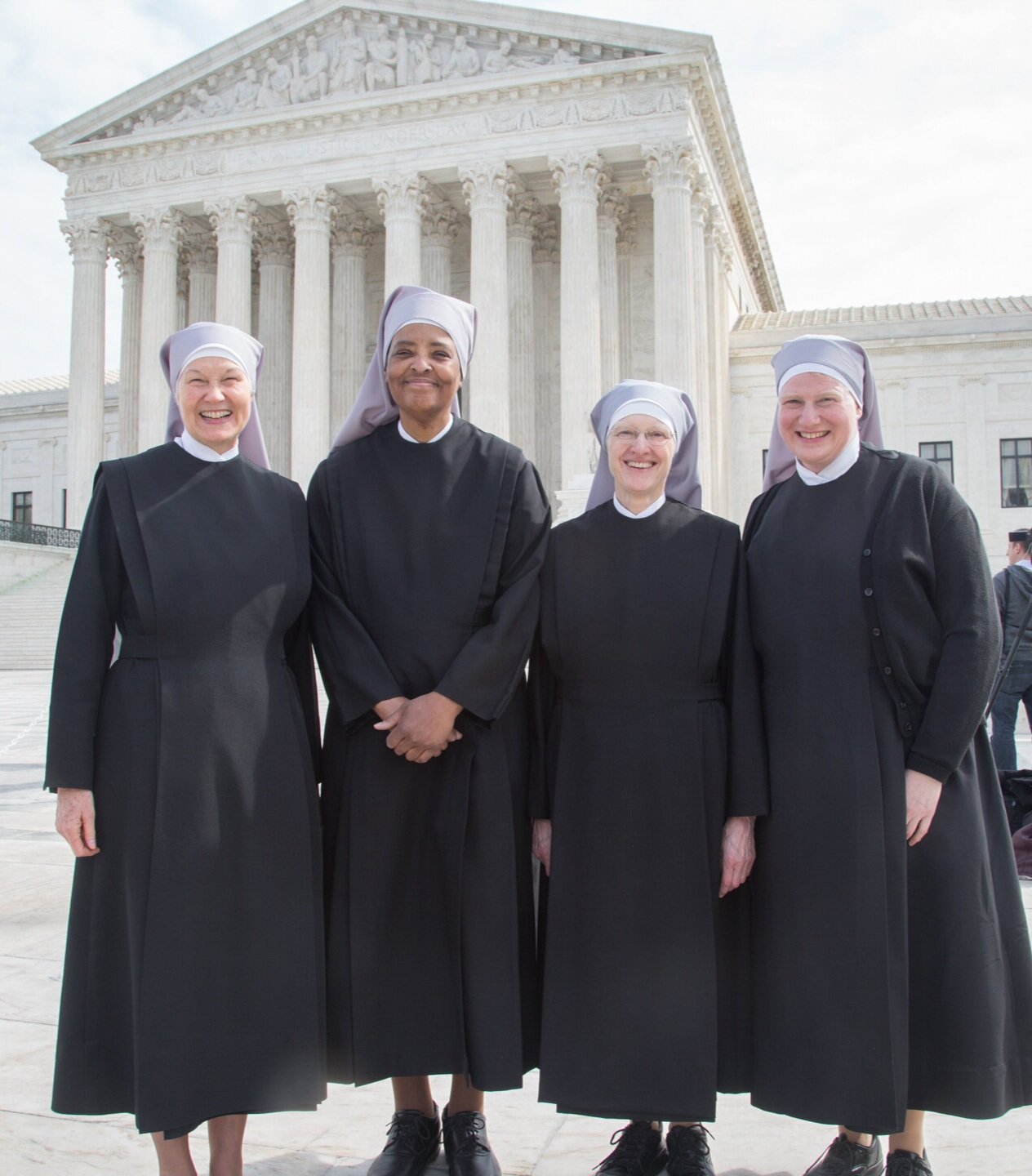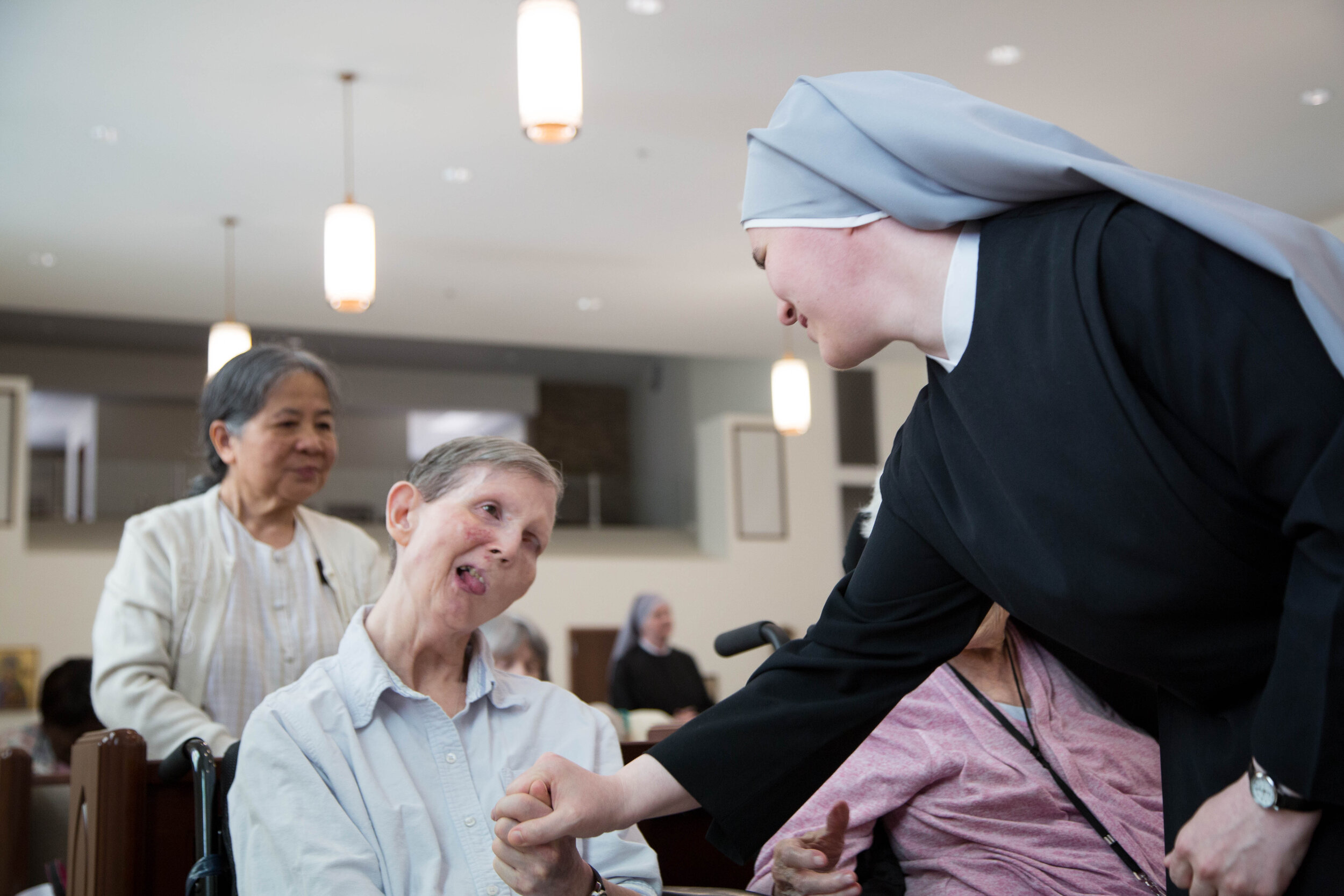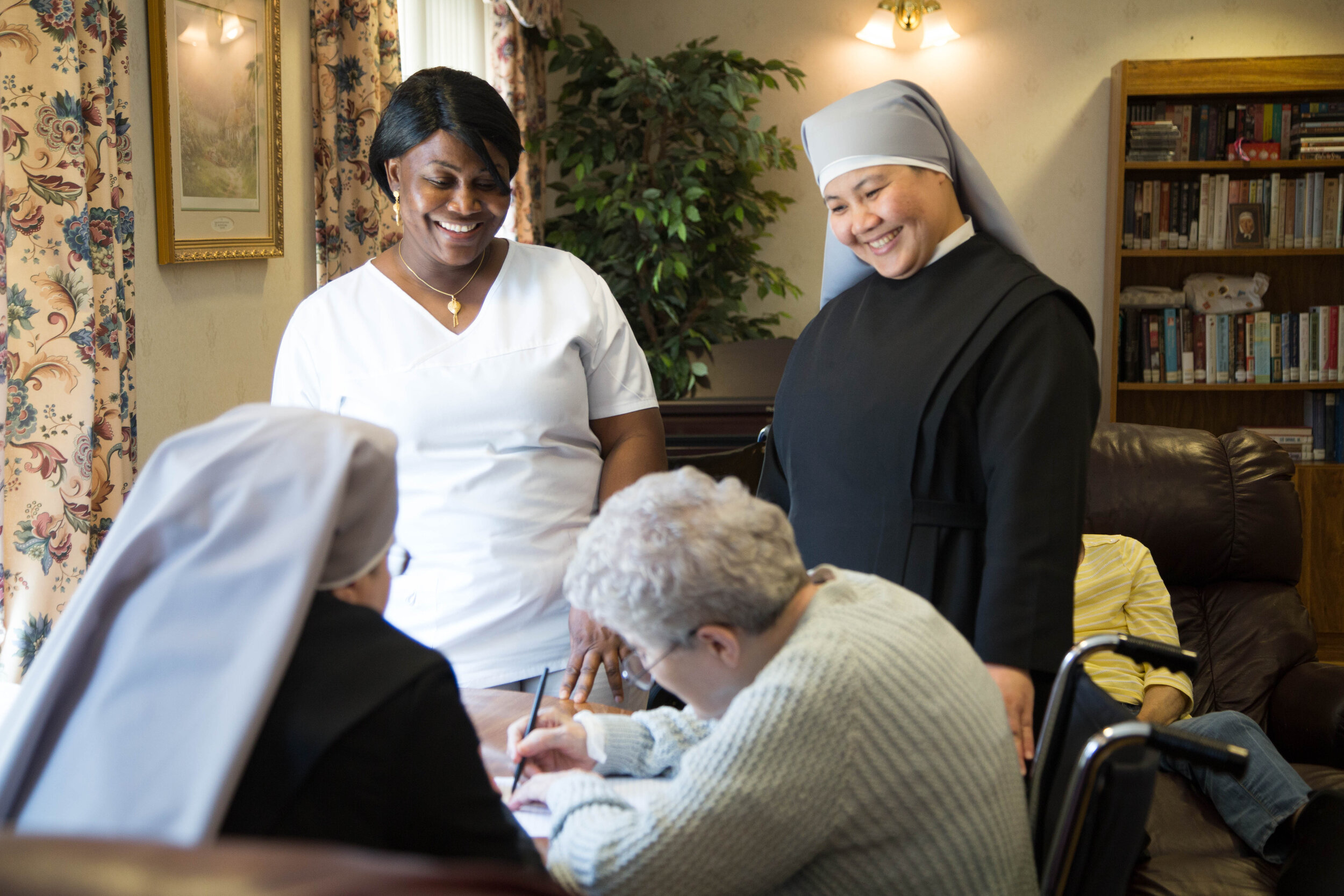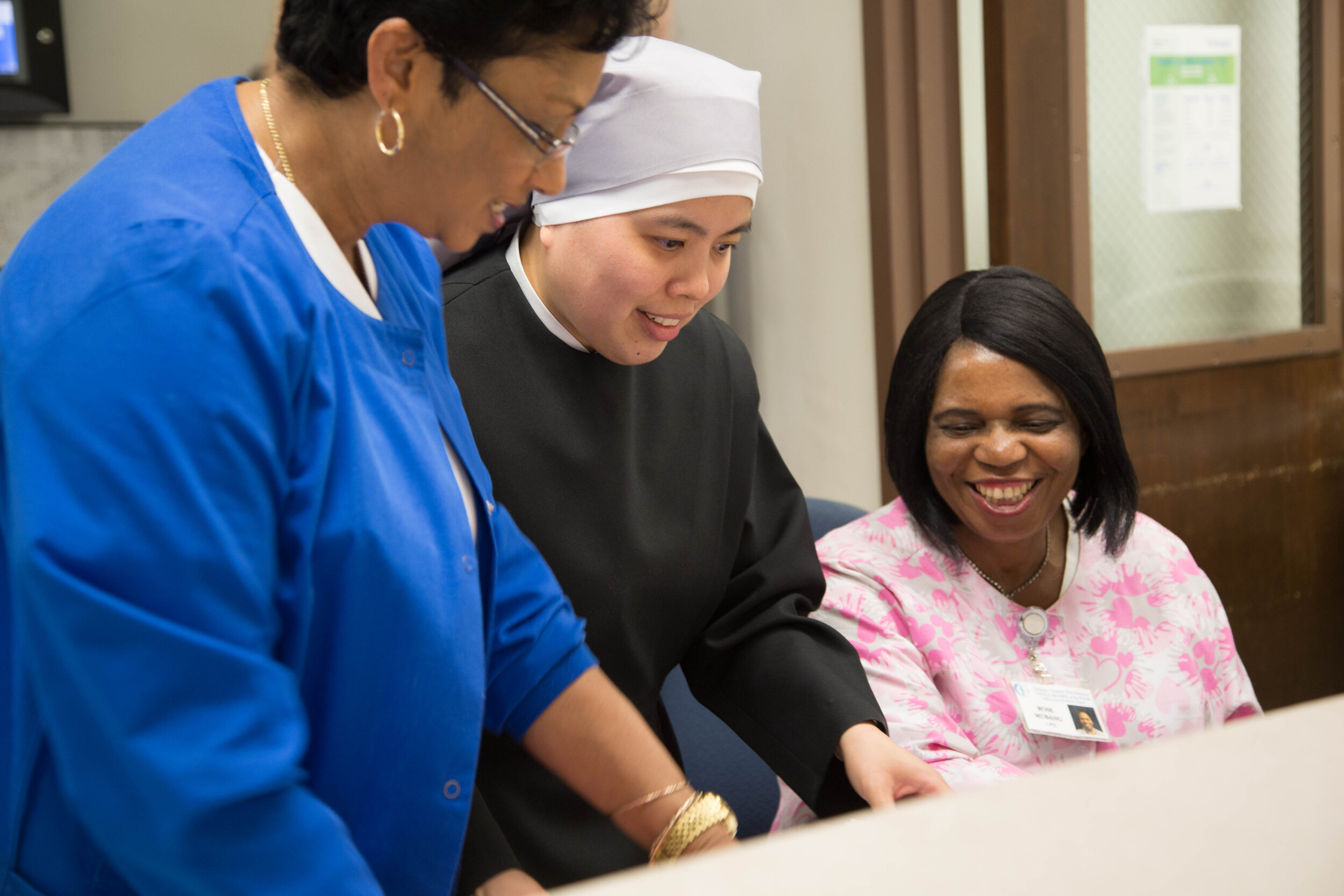



Victory for The Little Sisters of the Poor
Victory for The Little Sisters of the Poor
Decision from U.S. Supreme Court:
Opinion of the Supreme Court
Oral Argument at the U.S. Supreme Court:
May 6, 2020 (10-11 am) Listen here
After seven years of unending legal conflict to save their ministry, the Supreme Court has ruled in favor of the Little Sisters of the Poor 7-2 , allowing them to continue serving the elderly poor and dying without threat of millions of dollars in fines. Today’s ruling grants them protection to freely serve the elderly poor without violating their conscience.
In 2013, when the federal government came after the nuns over the contraceptive mandate, the Little Sisters reluctantly went to court and won relief from the Supreme Court, but now several state governments are on the attack. The Little Sisters are currently defending themselves from lawsuits by Pennsylvania and other states at the U.S. Supreme Court, which heard the case telephonically on May 6. The Little Sisters of the Poor are standing up to defend their religious exemption and to preserve accommodations from burdensome government regulations for all religious Americans.
Thank you to all who supported the Little Sisters of the Poor as they had their day at the Supreme Court

Who are the sisters?
Nuns who care for the elderly poor as if they were Christ himself.
Who are the sisters?
Nuns who care for the elderly poor as if they were Christ himself.
The Little Sisters of the Poor are a group of Catholic nuns who are devoted to caring for the elderly poor. In the Little Sisters’ homes, no one dies alone. The elderly and dying are cared for with love and dignity—regardless of wealth or status—as if they were Christ himself, until God calls them home. These religious women are loving and joyful in their ministry, even as they go begging door to door to provide for their communities.
The Little Sisters of the Poor didn’t ask for this legal fight. They exhausted every option possible before going to court, but they cannot do the important work of caring for the elderly poor without protection from government regulations that force them to violate their faith.

Back To the Supreme Court
How did the Little Sisters’ case end up back at the highest court?
Back To the Supreme Court
How did the Little Sisters’ case end up back at the highest court?
In 2011, the federal government issued a regulation that would have required the Little Sisters to provide contraceptives and abortifacients in violation of their deeply held religious beliefs or pay millions of dollars in fines. After a long battle in the lower courts, during which the government told the nuns they were fighting an “invisible dragon,” the Supreme Court finally stepped in and unanimously ordered the government to leave the Little Sisters alone and find another solution. The government admitted that it had other ways to distribute contraceptives, and in 2017, the federal government issued a new rule with broad religious exemptions for religious ministries like the Little Sisters of the Poor.
But Pennsylvania, California, and several other states immediately sued, arguing that the government doesn’t have the authority to issue the religious exemption, threatening not only the Little Sisters’ ministry but religious accommodations for countless others.
Learn more about the case background
What’s at stake?
Our Constitution does not require the government to punish any religious person for living out their faith. The government already recognizes religious exemptions for employees who cannot work on the Sabbath, doctors and nurses who cannot participate in religiously objectionable procedures, and faith groups that choose to hire only individuals who share their beliefs. Followed to their conclusion, Pennsylvania’s arguments would threaten the longstanding, long-accepted tradition of religious exemptions to federal laws that protect religious minorities and allow diverse beliefs to flourish in our society.
When will this fight be over?
The Court should put an end to this seven-year-long legal battle once and for all, grant the Little Sisters permanent relief from the contraceptive mandate so that they can serve the elderly poor without violating their beliefs, and affirm the importance of religious exemptions for the millions of Americans who rely on protection from burdensome laws in order to live out their faith.









